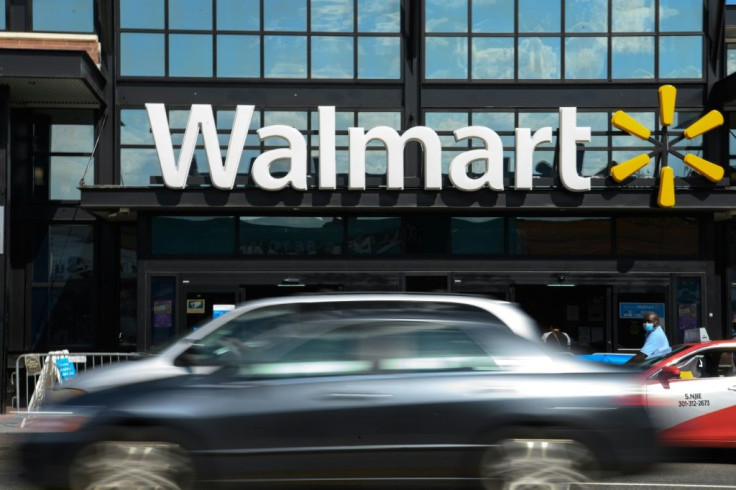Vaccines, Stimulus Fuel Strong Results At US Retailers
Walmart and other US retailers expressed optimism for the year ahead on Tuesday following a strong first quarter fueled in part by government stimulus payments, even as questions loom about inflation and labor supply.
The world's biggest retailer Walmart reported much better-than-expected profits, although sales growth moderated somewhat compared with the huge increases earlier in the pandemic.
Results from Home Depot and Macy's also topped estimates, with executives also pointing to a lift from widespread vaccinations.
"We're encouraged by traffic and grocery market share trends," said Walmart Chief Executive Doug McMillon. "In the US, customers clearly want to get out and shop."
McMillon said government stimulus payments "had an impact" during the quarter and "we anticipate continued pent-up demand throughout 2021."
Profits in the quarter ending April 30 came in at $2.7 billion, down 32 percent from the year-ago period. Revenues were $138.3 billion, up three percent.
In the most recent quarter, Walmart's US division scored six percent growth in comparable sales -- an impressive level that was above analysts' expectations, but which lagged the 10 percent growth in the first quarter of last year.
That was the period when Walmart's designation as an "essential store" at the height of the pandemic in the United States allowed it to gain market share from retailers forced to shut or modify operations.
A similar trend was seen in Walmart's US e-commerce sales, which grew 37 percent in the most recent quarter, half the level in the year-ago period.
The company pointed to tight supply of some goods such as adult bicycles and some consumer electronics.
Executives said they were working to manage broad-based inflation, but noted that the company's broad assortment of goods allows it to offset price increases on select items with lowered prices on others.
Walmart also increased some of its full-year profit projections as executives expressed confidence in the market in the latter part of the year.
"Savings rates are actually still at an almost all-time high, which would lead you to believe there is going to be some pent-up demand as we get to the back half of the year," Chief Financial Officer Brett Biggs said on a conference call with analysts.

Meanwhile, Home Depot posted its latest batch of strong results in the wake of a boom in home-improvement demand during the pandemic.
Net income surged 85 percent to $4.1 billion on a 33 percent jump in revenues to $37.5 billion.
The gains were driven by strong demand across the company's portfolio, which caters to both "do-it-yourself" consumers and professionals such as carpenters.
Higher costs of lumber and copper have also lifted sales. In the case of lumber, the company is having no trouble passing on prices more than four times the year-ago level, executives said on a conference call.
"As soon as that product hits our stores, it sells," said President Edward Decker, who likened it to a "storm" environment where demand is exceptionally high.
Asked about broad-based wage inflation, Chief Executive Craig Menear described some markets as "more challenging than others," but added that "we've actually hired more folks this year than we did last year."
Macy's has been impacted by a "tightening job market," said Chief Financial Officer Adrian Mitchell, highlighting a risk in an otherwise strong report.
The department store chain scored earnings of $103 million compared with a $3.6 billion loss in the year-ago period. Revenues jumped 56 percent to $4.7 billion.
Chief Executive Jeff Gennette cited the stimulus and the lift from vaccinations as drivers of increased sales. Popular items included special-occasion dresses for graduations or weddings, as well as dress clothing for men and even luggage.
"The consumer is healthy with lower debt and strong household savings," Gennette said on a conference call. "After a year of reduced activity, consumers are ready to get out, reconnect with family and friends and celebrate life."
Shares of Walmart rose 2.2 percent to $141.91, while Macy's dipped 0.4 percent to $19.09 and Home Depot fell 1.0 percent to $316.75
© Copyright AFP {{Year}}. All rights reserved.





















